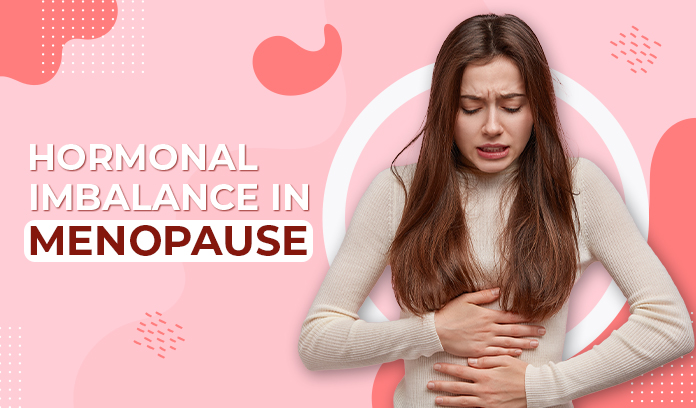Menopause marks a significant transition in a woman’s life, accompanied by hormonal shifts that can impact overall well-being. Understanding the intricacies of menopausal hormonal imbalance is crucial for women navigating this stage of life. In this guide, we delve into the various symptoms and solutions associated with menopausal hormonal changes, empowering women to embrace this transformative journey with confidence and vitality.
Menopausal Hormonal Shifts: An Overview
As women approach menopause, hormonal fluctuations become more pronounced, leading to a range of physical and emotional changes. Estrogen levels decline, leading to symptoms such as hot flashes, night sweats, and vaginal dryness. Additionally, progesterone levels may decrease, contributing to mood swings, insomnia, and weight gain. Understanding these hormonal shifts is the first step towards effectively managing menopausal symptoms.
Estrogen Fluctuations and Their Impact
Estrogen plays a central role in women’s reproductive health and overall well-being. During menopause, estrogen levels decline, resulting in a variety of symptoms, including hot flashes, night sweats, and mood swings. Explore the effects of estrogen fluctuations on the body and strategies to alleviate symptoms and promote hormonal balance.
Androgen Deficiency and its Consequences
While estrogen decline is a hallmark of menopause, androgen levels may also decrease, contributing to symptoms such as loss of libido and decreased energy levels. Learn about the role of androgens in women’s health and effective approaches to address androgen deficiency during menopause.
Managing Symptoms of Hormonal Imbalance
Effective management of menopausal symptoms requires a comprehensive approach that addresses both physical and emotional well-being. Explore strategies to alleviate common symptoms such as hot flashes, night sweats, mood swings, and insomnia. From lifestyle modifications to hormone replacement therapy, there are various options available to help women navigate this transition with grace and resilience.
Bone Density Loss and Memory Fog
Hormonal changes during menopause can also impact bone health and cognitive function. Decreased estrogen levels may contribute to bone density loss, increasing the risk of osteoporosis. Additionally, memory fog and difficulty concentrating are common cognitive symptoms experienced by menopausal women. Discover ways to support bone health and cognitive function during this stage of life.
Addressing Emotional Well-being
In addition to physical symptoms, menopausal hormonal imbalance can also affect emotional health, leading to anxiety, depression, and mood swings. Explore strategies to support emotional well-being, including mindfulness practices, therapy, and social support networks.
Conclusion
In conclusion, menopausal hormonal imbalance is a natural part of the ageing process for women, but it doesn’t have to be a barrier to living a fulfilling life. By understanding the symptoms and solutions associated with hormonal changes during menopause, women can proactively manage their health and well-being. Remember, it’s essential to consult a medical professional before making any significant health-related decisions or changes. Embrace this transformative journey with self-care, resilience, and empowerment.
Consultation Disclaimer
Before embarking on any significant health-related changes or following advice mentioned in this article, it is imperative to consult a qualified medical professional. Individual circumstances vary, and professional guidance ensures the appropriateness and safety of any health-related endeavours.


